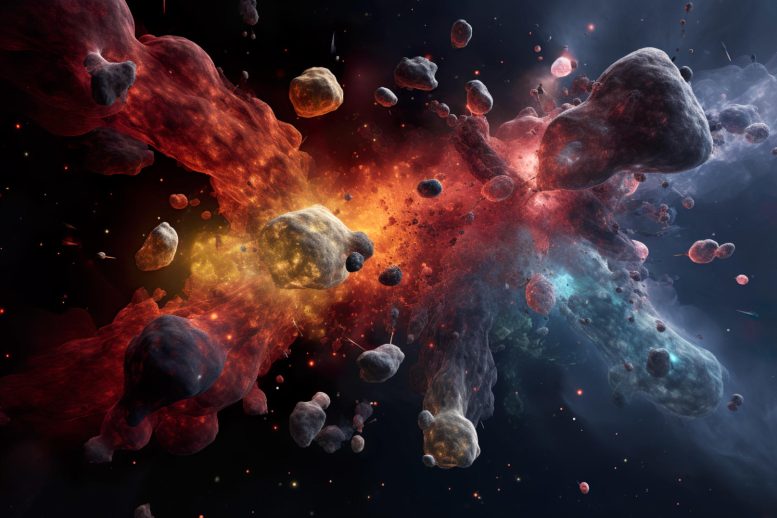
Meteors or volcanic ash’s iron-rich particles may have facilitated the transformation of atmospheric CO2 into life’s essential molecules around 4.4 billion years ago, suggests a study. These early reactions could have birthed compounds critical for life.
Chemical reactions driven by iron-laden particles from meteorites or volcanic outbursts might have led to the formation of molecules needed for the origin of life on Earth about 4.4 billion years ago, according to a study recently published in Scientific Reports.
Earlier studies have proposed that organic molecule precursors like hydrocarbons, aldehydes, and alcohols might have arrived on Earth through asteroids and comets, or been synthesized through reactions within the young Earth’s atmosphere and oceans. Such reactions might have been facilitated by energy from sources like lightning, volcanic activity, or impacts. Nonetheless, due to insufficient data, the primary mechanism responsible for creating these precursors remains unclear.
Oliver Trapp and colleagues investigated whether meteorite or ash particles deposited on volcanic islands could have promoted the conversion of atmospheric carbon dioxide to the precursors of organic molecules on the early Earth. They simulated a range of conditions that previous research has suggested may have been present on the early Earth by placing carbon dioxide gas in a heated and pressurized system (an autoclave) under pressures ranging between nine and 45 bars and temperatures ranging between 150 and 300 degrees Celsius. They also simulated wet and dry climate conditions by adding either hydrogen gas or water to the system.
They mimicked the depositing of meteorite or ash particles on volcanic islands by adding different combinations of crushed samples of iron meteorites, stony meteorites, or volcanic ash into the system, as well as minerals that may have been present in the early Earth and are found in either the Earth’s crust, meteorites, or asteroids.
The authors found that the iron-rich particles from meteorites and volcanic ash promoted the conversion of carbon dioxide into hydrocarbons, aldehydes, and alcohols across a range of atmosphere and climate conditions that may have been present in the early Earth. They observed that aldehydes and alcohols formed at lower temperatures while hydrocarbons formed at 300 degrees Celsius.
The authors suggest that as the early Earth’s atmosphere cooled over time, the production of alcohols and aldehydes may have increased. These compounds may then have participated in further reactions that could have led to the formation of carbohydrates, lipids, sugars, amino acids, DNA, and RNA. By calculating the rate of the reactions they observed and using data from previous research on the conditions of the early Earth, the authors estimate that their proposed mechanism could have synthesized up to 600,000 tonnes of organic precursors per year across the early Earth.
The authors propose that their mechanism may have contributed to the origins of life on Earth, in combination with other reactions in the early Earth’s atmosphere and oceans.
Reference: “Synthesis of prebiotic organics from CO2 by catalysis with meteoritic and volcanic particles” by Sophia Peters, Dmitry A. Semenov, Rupert Hochleitner and Oliver Trapp, 25 May 2023, Scientific Reports.
DOI: 10.1038/s41598-023-33741-8



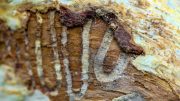
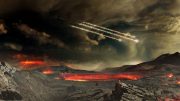

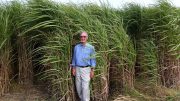
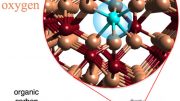

Be the first to comment on "Meteoritic and Volcanic Particles May Have Promoted Origin of Life Reactions 4.4 Billion Years Ago"